ONE glance at Capt. Nicholas Barringer's uniform and it is immediately apparent that he is not an average Army dietitian. Metal jump wings rest above his
"U.S. Army" service tape, and the often-vacant space above his unit scroll is home to a muted green Ranger tab.
Barringer, from Kingsport, Tenn., is the Army's first Ranger-qualified dietitian, and is helping change the way Rangers train, work and operate by looking at how they fill their stomachs.
With the adoption of the Ranger Athlete Warrior, or RAW program in 2005, the Ranger community brought on a team of military and civilian medical professionals rivaling that of an NFL team. Barringer, currently stationed at Fort Benning, Ga., with the 75th Ranger Regiment, is part of the medical equation striving to make
Rangers an even more elite fighting force.
"It's about treating Rangers like athletes, which they are," Barringer said of the RAW program. "Anyone who relies on their body for a living is an athlete."
Barringer adds to the team by leading classes on proper nutrition, coaching Soldiers with specific dietary goals and suggesting dining facility menu changes. He also researches new physical training techniques, such as kettlebell training, and teaches weightlifting classes.
As a student at the University of Georgia, Barringer said his plan was to be a strength coach, but found that he liked his nutrition classes better. Earning his degree and commission in 2003, Barringer's first assignment was as an evacuation platoon leader at Fort Drum, N.Y.
Barringer had originally applied for the Army's dietitian program while still in college, but due to a filing mix-up, his application wasn't correctly processed.
While at Fort Drum, he looked into the program again, and this time was picked up.
During a nine-month internship at Brook Army Medical Center in San Antonio, Texas, Barringer went through clinical rotations including renal nutrition, cardio-vascular, diabetic care and food service. Upon completing his internship, Barringer passed the Registered Dietitian national exam and became one of about 150 dietitians in the Army. (Note: the words "dietitian" and "nutritionist" are not interchangeable-dietitian is a credentialed title, nutritionist is not).
Barringer was then assigned to Fort Hood, Texas, but soon volunteered for a deployment to Iraq. While working at a Combat Support Hospital there in 2006, he received a call from a colleague about the RAW program with the 75th Ranger Regiment.
"There was an opportunity to work with the Rangers, and of course I immediately jumped at it," he explained. For Barringer, working for the 75th Ranger Regiment meant attending the Ranger Assessment and Selection Program, the Basic Airborne Course and the U.S. Army Ranger Course within a matter of months. Barringer also recently completed Survival, Evasion, Resistance and Escape training where instructors shouted at him during an interrogation exercise to tell them his real job-they didn't believe he was a dietitian.
Although the training's been tough, Barringer said he is just glad to have the chance to do what few in the Army's field of medicine have done.
"Ranger slots at a hospital are pretty much non-existent," Barringer noted. Major Robert D. Montz, the Regimental occupational therapist for the 75th Ranger Regiment and Barringer's colleague in the RAW program, explained that it was important for Barringer to complete the training Rangers go through in order to understand the kind of nutrition these elite Soldiers need.
"Ranger School and SERE school have been instrumental in Capt. Barringer's success in the Regiment," Montz said. "It shows his fellow Rangers that he truly appreciates and understands the physical and mental demands of Rangering, and how nutrition can impact their ability to accomplish the mission."
Normally as a dietitian, Barringer would be either assigned a position working with hospital patients or running a hospital's dining facility-each Army hospital has a dietitian to tailor meal plans for patients with diet restrictions.
Barringer is trained in calculating the nutritional formulas for feeding tubes for patients who cannot eat, calculating Soldiers' body fat, and helping those who want to lose or gain weight do so healthfully. In a hospital setting, one of Barringer's main roles would be giving Soldiers who do not meet the Army's height and weight standards guidance on how to become more fit.
"Every Soldier who's failed a tape test, by regulation, has to see a dietitian," he said. Sometimes without the assistance of a professional, he explained, people can become frustrated when they don't see the weight-loss results they expect.
For example, Barringer said one Soldier came to him with more body fat than he wanted, and Barringer gave him a nutrition plan to work on. When the Soldier returned to Barringer's office, he was disappointed: He had exercised and worked hard at eating healthfully, but had only lost 1 pound. But Barringer checked the Soldier's body composition and found that he had actually lost 5 pounds of fat, and gained 4 pounds of muscle.
"The addition of a dietitian has been instrumental in helping Rangers delineate fact from fiction with regards to human performance and nutrition," explained Montz of Barringer's role.
Barringer explained that the four pillars of the RAW program are functional fitness, performance nutrition, sports medicine and mental toughness. His area of expertise is performance nutrition.
Barringer is also a certified strength and conditioning specialist, which is a nationally recognized credential in strength training.
"I think that's where dietitians and physical therapists can work very well together," Barringer said of the nutrition-fitness overlap.
Barringer spends much of his time at the 75th Ranger Regiment travelling to combat zones and throughout the country wherever Rangers are stationed, to check in on their fitness and nutrition levels. As a strength trainer, he often holds physical training classes with Rangers to teach them new exercise methods he's learned.
"If you think about any time a Soldier picks up an ammo can and puts it on the back of a truck, they are doing resistance training," Barringer explained. "You don't want that to be the first time they've ever lifted something."
Rangers are a unique type of athlete, he noted, because of their high operational tempo, they might have to carry casualties for long distances, sprint, conduct an airborne insertion, or patrol on foot for days.
"It's hard to find an athlete that mirrors what a Soldier does. For example, an offensive lineman is never going to have to run 2 miles in his sport...it's a broad range to train for."
Since coming on board, Barringer has also implemented the purchase of three BOD POD systems-a highly effective body fat composition machine.
He uses the BOD POD to measure Soldiers' body fat, but also as nutritional information tool. He calculates Rangers' body composition before and after deployments, and students before and after they complete Ranger school to see what the training does to their bodies.
"What we like to do is get a baseline to track the guys over time, and to see where their bodies optimally perform at," Barringer explained.
He said most Rangers currently in the Army have received a body fat composition reading from one of the BOD POD systems, and for the past three years he's put all of the Regiment's Best Ranger competitors through the machine.
However, body fat isn't such a problem for most of the Rangers Barringer works with, as the physical standards for the infantry's finest are higher than for other Soldiers. More often, he fields questions about the safe use of dietary supplements.
Barringer said an Army survey revealed that Rangers as a group had the highest use of dietary supplements compared to other troops.
"They might be more willing to take a dietary supplement without really thinking about the risk," he explained, noting that for Rangers, risk is in their job description.
He said his primary piece of advice for Soldiers interested in dietary supplements is to read about the supplement's nutritional information.
"It amazes me. That's one of the biggest things that people don't do," he said of reading labels. "That's step one-my very first slide in my nutrition class is about reading labels."
As part of his job, Barringer monitors product recalls and warnings about supplements that can cause unwanted side effects, and keeps Rangers updated.
Barringer is also helping shake up the Regiment's dining facility menu by adding some healthier options, but he admits it isn't an easy task. He has helped push for a larger selection of fruit and a bigger salad bar, which he made sure is front and center. "The first thing you are going to see when you walk into a Ranger Regiment dining facility is the salad bar or fruit," he said.
He's also gotten rid of fried foods and replaced them with more baked options. For example, Barringer recently replaced fried Tater Tots with baked sweet-potato tots, and claims they are delicious. He's also interested in bringing in more Omega-3 fatty acid-rich fish, which is said to protect the brain against Traumatic Brain Injury.
However, he said he's being careful not to make the dining facility completely fat-free.
"A Soldier can always choose to go to McDonald's or Burger King instead...that's one of the things you have to be careful with. We still want guys to eat here."
But if Barringer had his way, fast food wouldn't be a meal option for Soldiers, and neither would soda. Soda, his biggest pet peeve, is a pitfall for those trying to lose weight, he said, because people rarely count liquid calories. He warned that just two
20 ounce sodas per day can add up to 1 pound in gained fat per week.
"There have been studies that show we don't register the calories that we drink...if I had you eat 500 extra calories per day, chances are you would reduce your food intake to adjust," he explained.
Barringer also warned against the myth that juice is "healthy." He said he would rather have Soldiers eat a piece of fruit rather than drink fruit juice because of the high sugar content.
"Ounce-for-ounce, orange juice has the same amount of calories as coca cola," he warned.
What he does recommend are five to six smaller meals throughout the day, heavy on fruits, vegetables, lean proteins (such as baked chicken) and whole grains.
He also wants Soldiers to eat foods with bright colors-a bland palate denotes bland nutrition. "Fuel your activity," added Barringer. "Don't skip meals if you can help it. You have to keep your blood glucose even so you don't overeat."
In the future, he will continue to facilitate sports nutrition and body composition research and how it impacts Rangers' ability to conduct their mission in the current operational setting.
"There is a lot of anecdotal information and studies on athletes, but very little research on the military," said Montz.
Barringer also hopes to complete a doctorate in his field of study to pass on what he's learned, and to show others that keeping healthy can be a piece of (low calorie) cake .
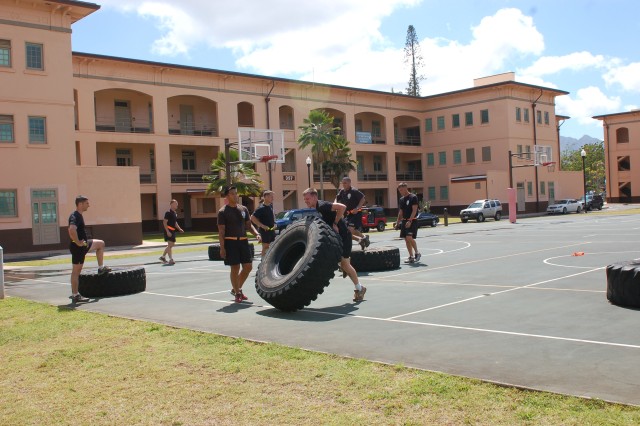
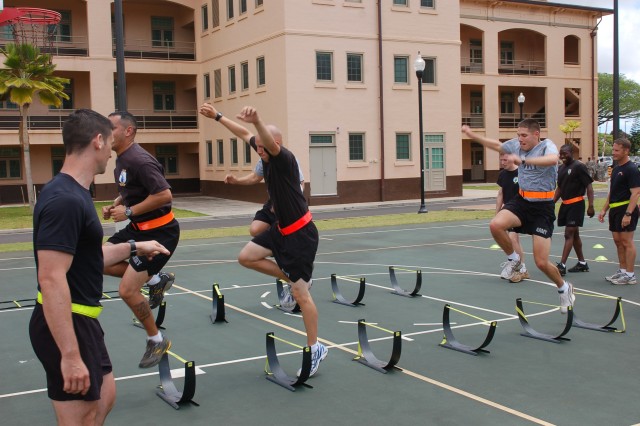
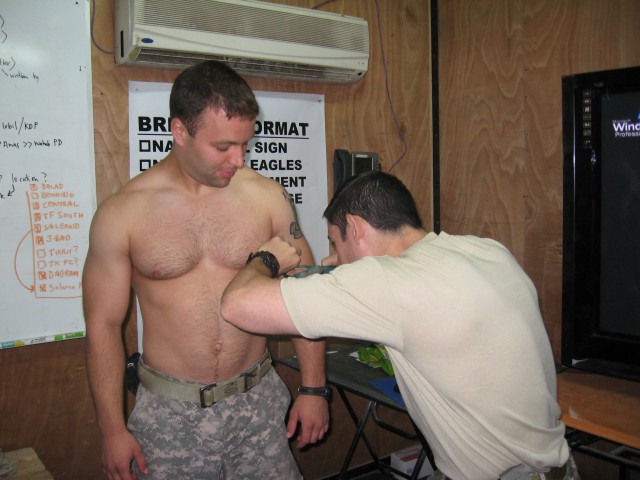
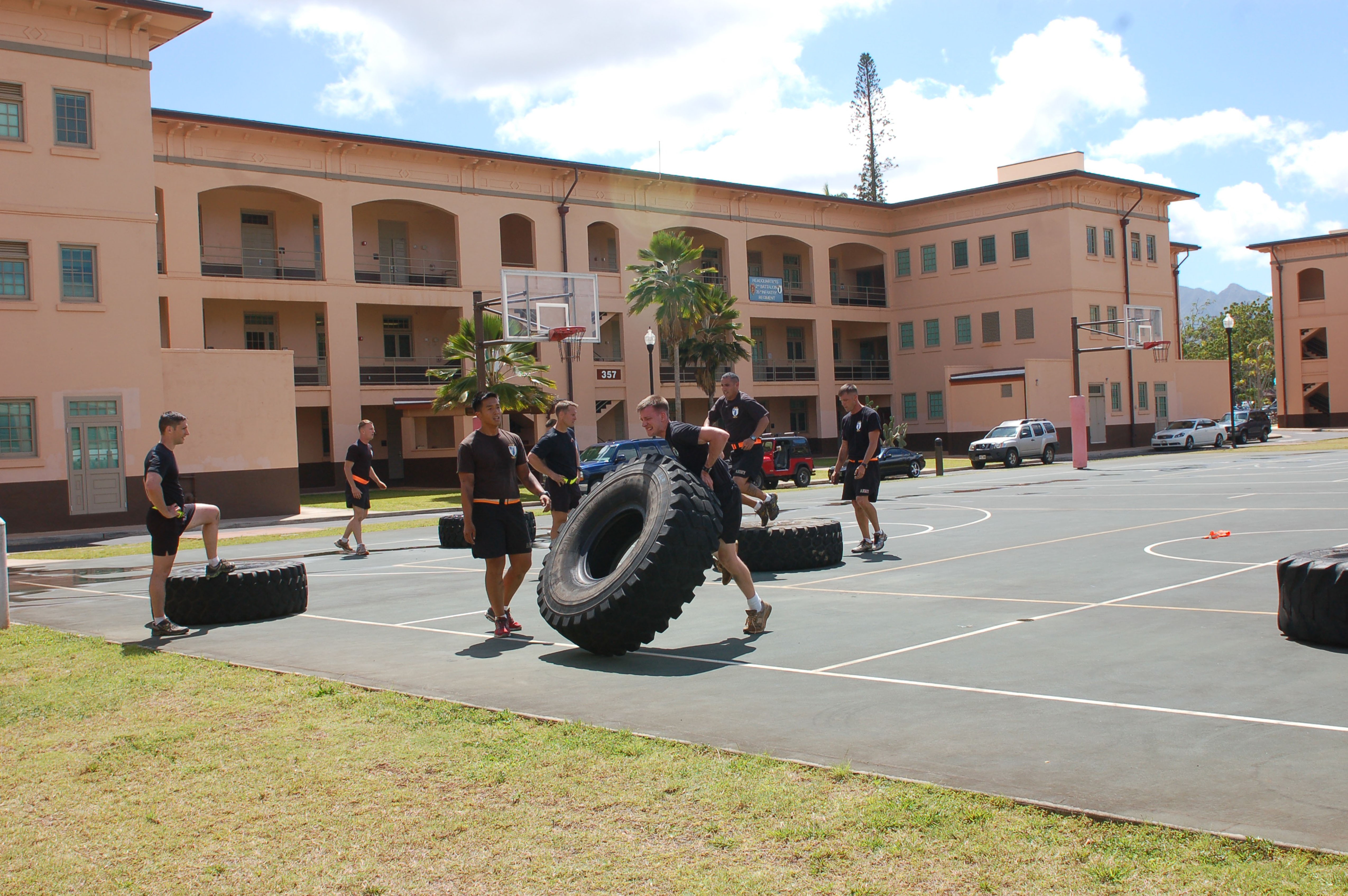
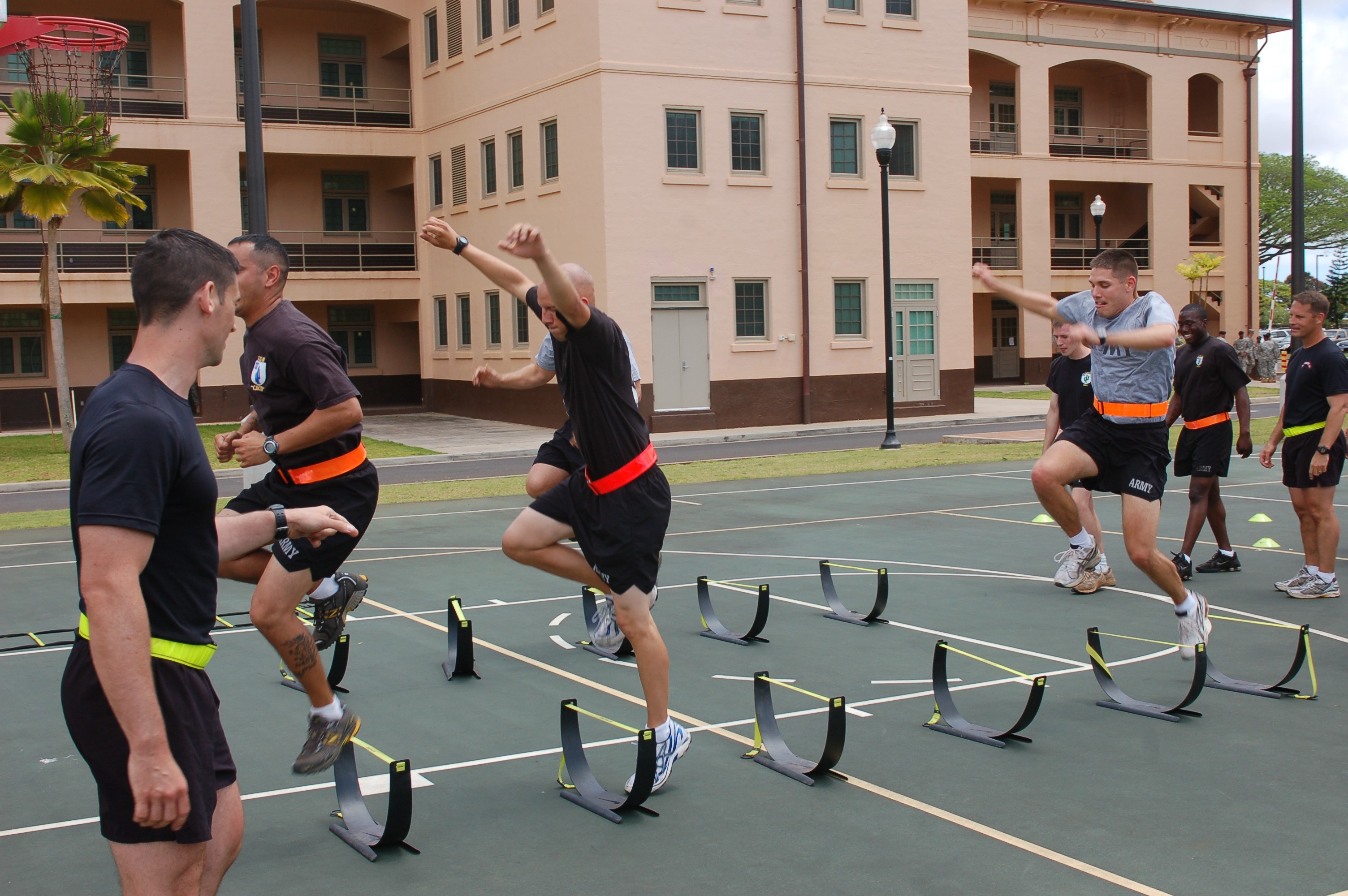
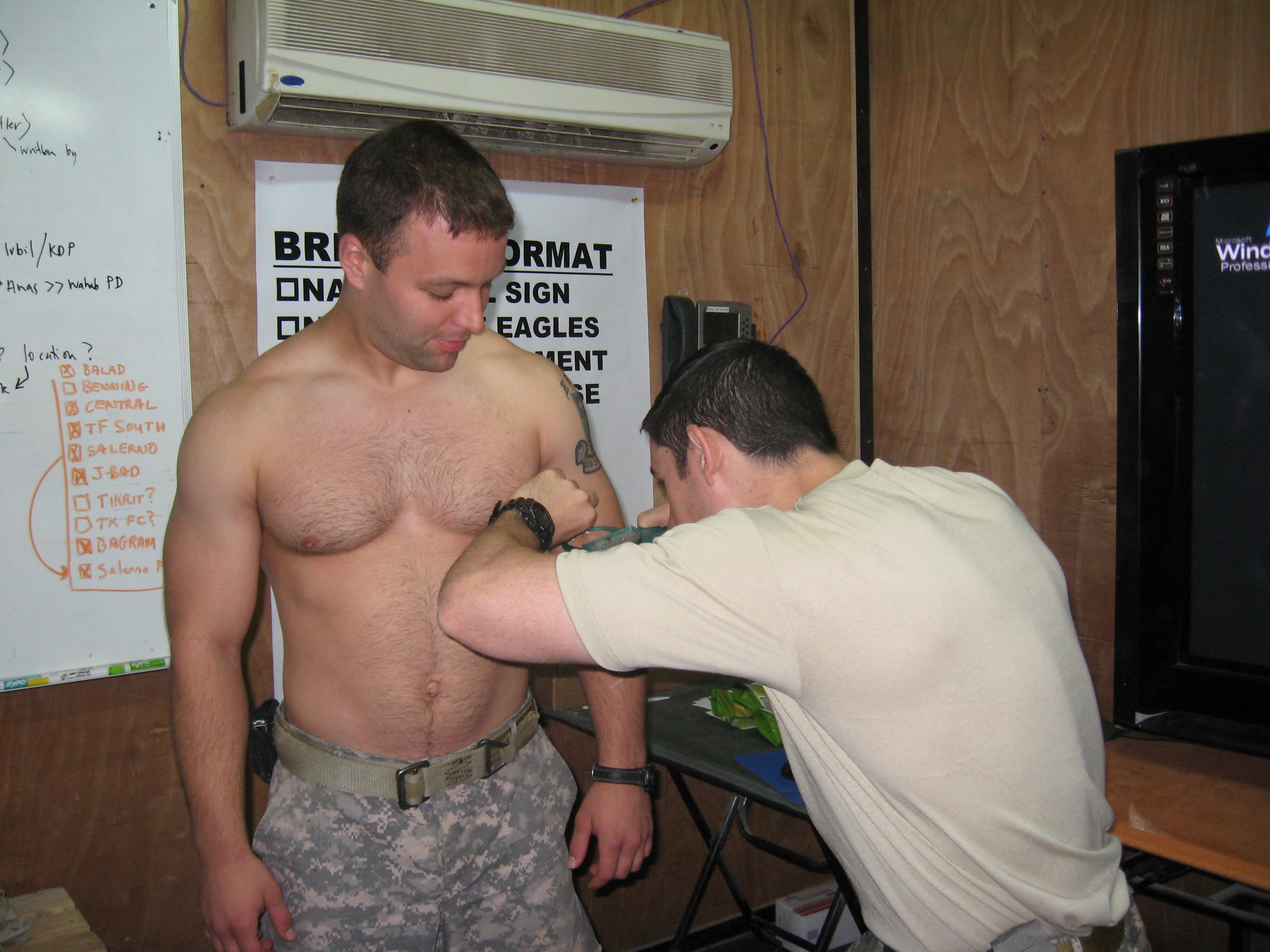
Social Sharing